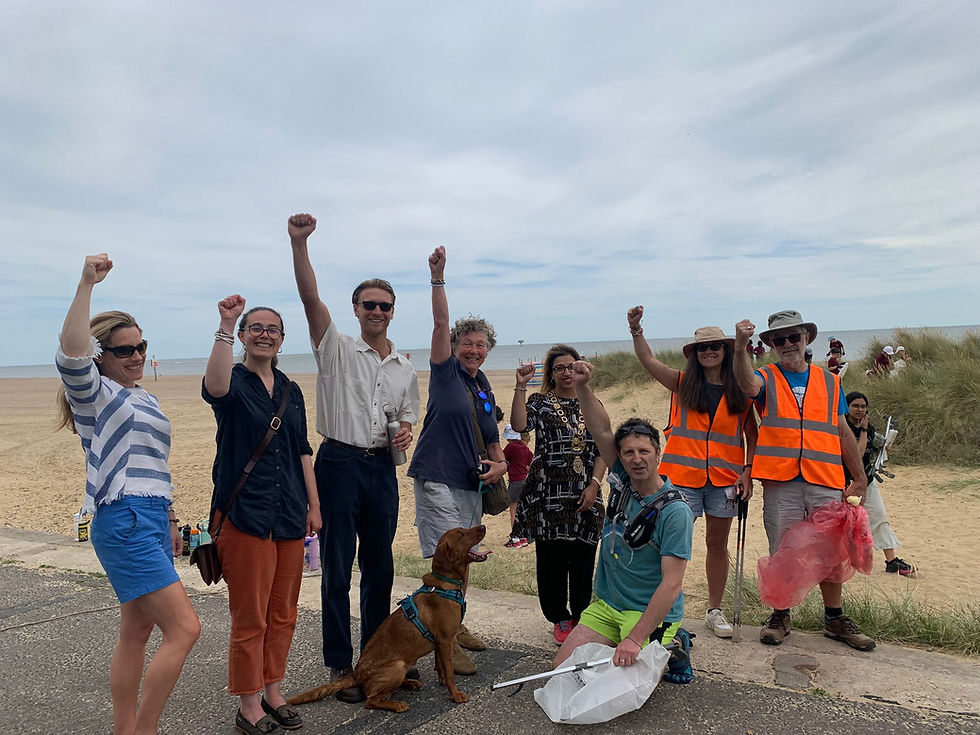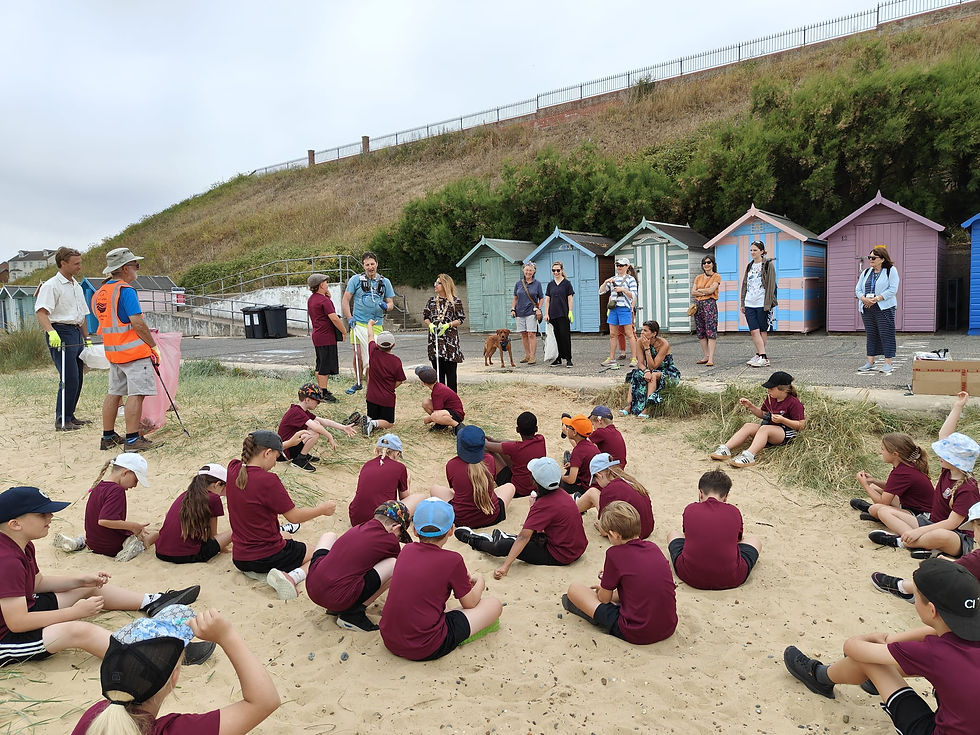Don’t Wait for the UN Plastics Treaty: Act Locally to Tackle Plastic Pollution Now
- Nathalia Fisher
- Aug 6, 2025
- 3 min read

When the UN meets in Geneva this week to negotiate the global Plastics Treaty, hopes will be high — and so are the stakes. But while negotiators argue over commas and footnotes, real action is already happening — on our beaches, in our classrooms, and across our communities.
Why the UN Plastics Treaty Matters — And Why It Might Fall Short
The UN Plastics Treaty, officially titled Resolution 5/14: End Plastic Pollution, aims to create a legally binding framework to reduce global plastic pollution. It’s an ambitious goal — and it’s currently stuck in political gridlock.
Current negotiations depend on full consensus — meaning powerful nations like the US, China, and Saudi Arabia can delay, weaken, or even block progress. And with every minute that passes, another truckload of plastic enters our ocean. We can’t wait. Literally, the world can't wait.
Just as the Vienna Convention (1985) led to the world’s most successful environmental agreement — the Montreal Protocol (1987) — this treaty needs flexibility, not perfection. It needs to prioritise immediate action and evolve over time, rather than aim for an unreachable gold standard from the outset.
Local First: What We Can Do Now

The good news? Local action works.
Plastic bag charges in the UK reduced usage by over 90% and saved 6 billion bags annually. San Francisco banned plastic bags in 2007; California followed statewide in 2014. Now, countries across the world are doing the same. The EU is restricting microplastics. The UK banned plastic stirrers in 2020 after years of campaigning – and our Stircrazy campaign in particular. These didn’t come from UN treaties — they came from people and places refusing to wait.
Here’s what can be done now:
Governments can ban unnecessary single-use plastics and microplastics.
Councils can map plastic leakage and support cleanups.
Businesses can implement Extended Producer Responsibility (EPR).
Individuals can educate, organise, and take action — starting with the plastic at their feet.
AFWR: Turning Miles into Momentum
A Future Without Rubbish (AFWR), led by environmentalist and Chartered Environmentalist Luke Douglas-Home, has spent years proving that bottom-up change is not just possible—it's powerful. Through his work as The Coastline Runner, Luke has run over 1,000 km of the UK’s coastline, collecting more than a tonne of plastic waste.
AFWR’s previous campaigns, like “1 Bag Zero Waste” and “StirCrazy”, helped ban single-use plastic stirrers in the UK. That campaign started with a coffee shop conversation and ended in Parliament. That’s what systemic, grassroots change looks like.
Now, AFWR is scaling up with its latest initiative: Setting the Standard.
This community-led pilot kicked off in Lowestoft (July 2025), with participation from:
St Mary’s RC Primary School pupils,
Suffolk County and East Suffolk Councils,
Waste industry professionals,
Environmental Lawyers (UKELA)
And Mayor Nasima Begum of Lowestoft Town Council
We're building a community-led framework to standardise clean-up reporting, engage stakeholders, and push for long-term accountability. It’s low-cost, replicable, and a blueprint for systems change.

The UN Plastics Treaty Still Matters
We do need the treaty. The ocean can’t wait. But the outcome of Geneva must not be an excuse to delay. The treaty should not be used as a fig leaf for inaction. Instead, it should amplify what's already working and start building blocks to truly end plastic pollution.
If it helps enforce regulations, great. If it funds cleanups and supports communities, excellent. If it allows us to track progress and hold polluters accountable, it becomes essential.
“You don’t need to be in Geneva to make a difference. Just start with the plastic at your feet." - Luke Douglas-Home
But if it fails to deliver, we must act anyway. We already know what works. And we can all start where we are.
Want to support this work?
Visit www.thecoastlinerunner.com or follow @thecoastlinerunner on social media. Your support helps turn every step and every cleanup into long-lasting change.



Comments